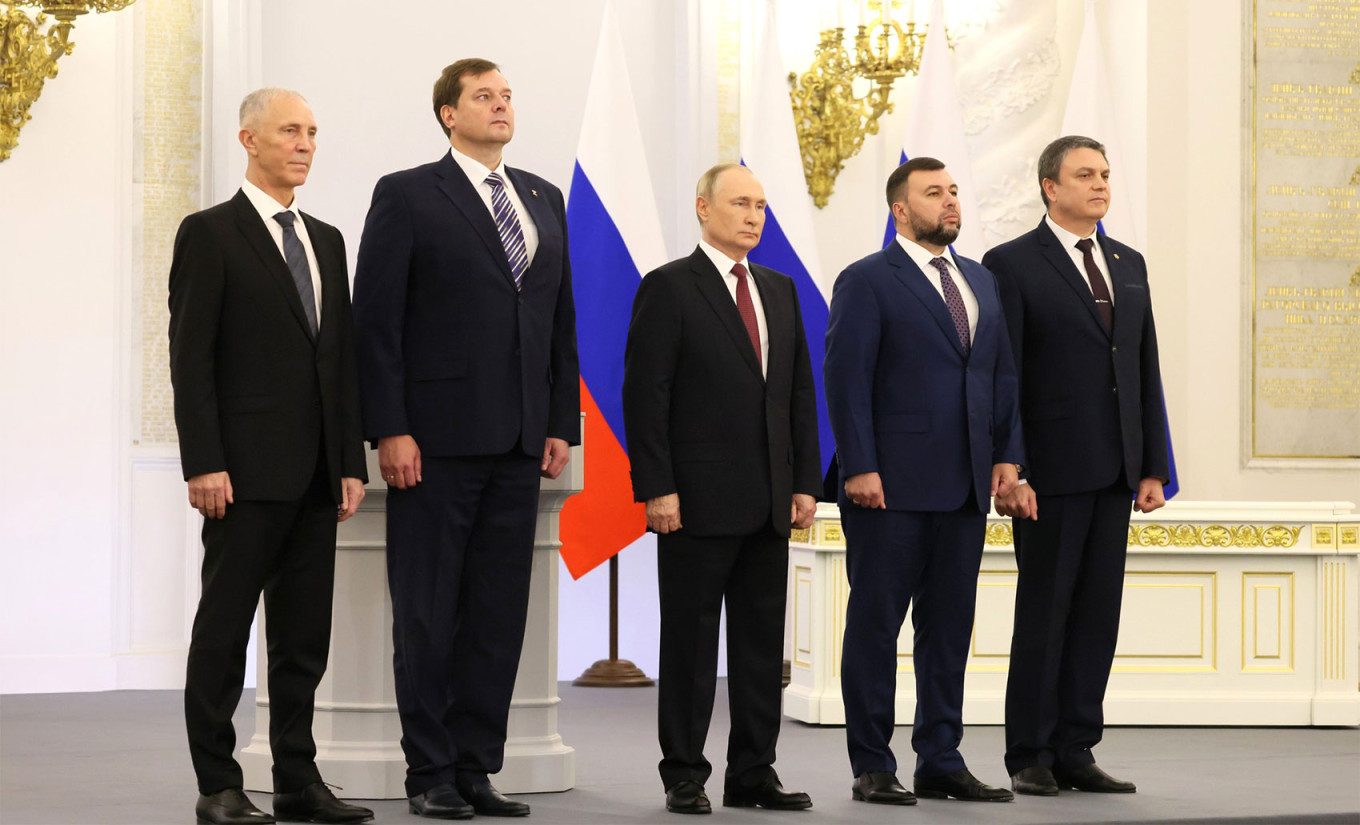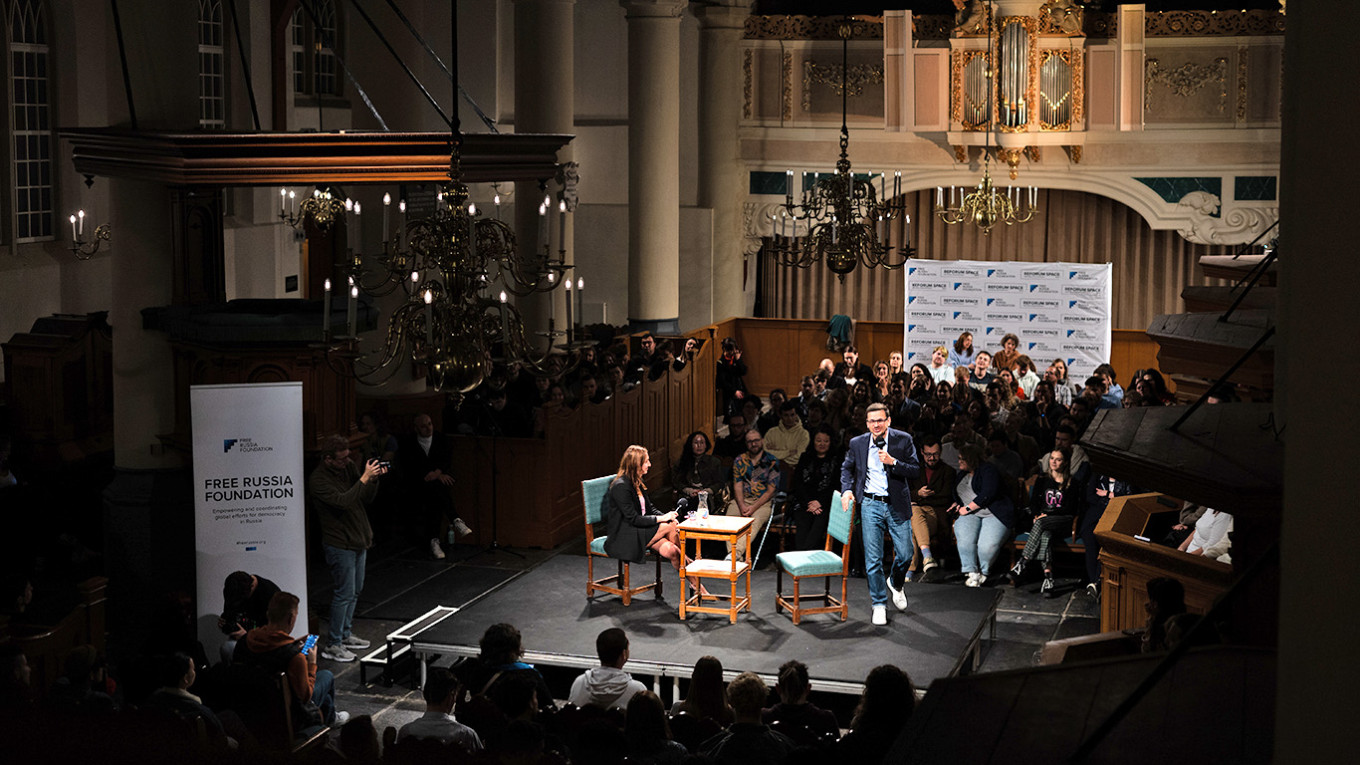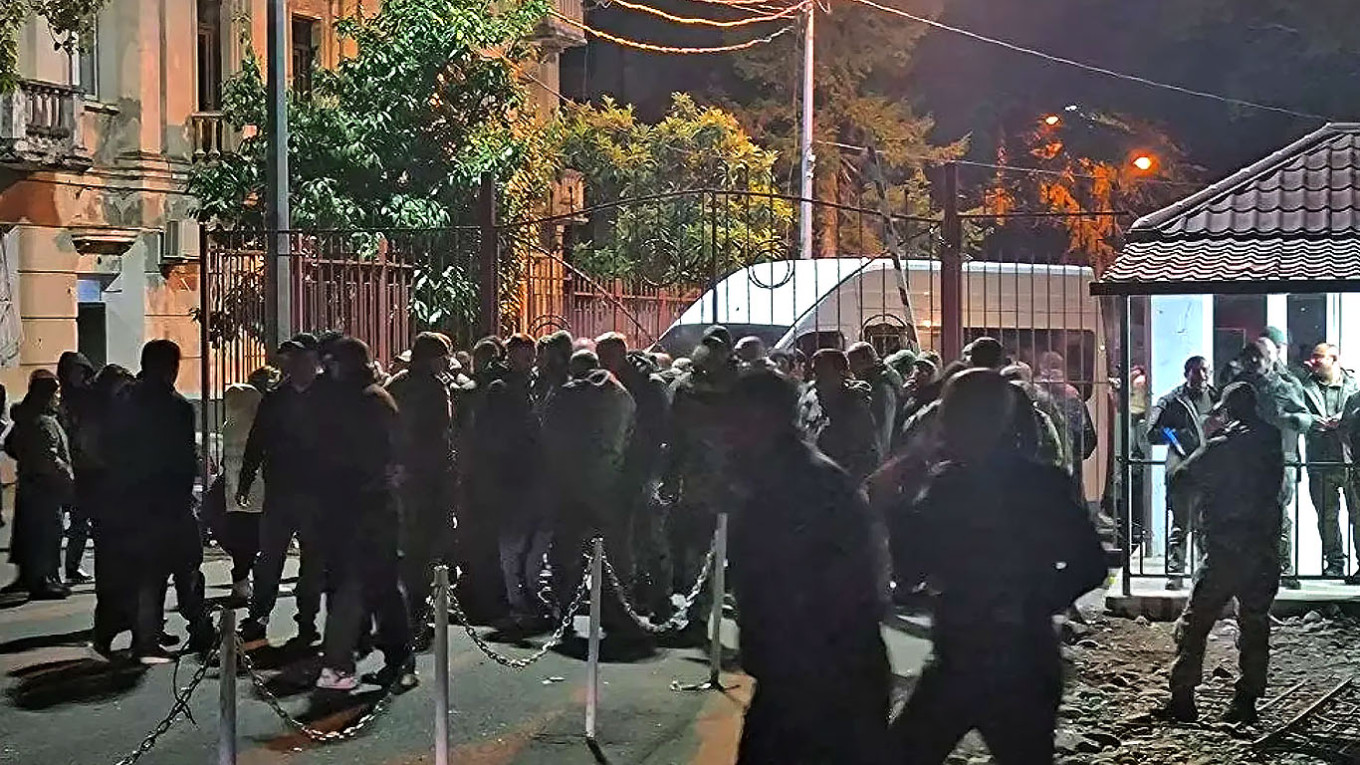
Russia has made little progress in absorbing four partially occupied areas of eastern and southern Ukraine that it annexed with great fanfare in September, analysts told The Moscow Times, as intensifying military activity and political challenges hinder integration.Aligning economies and political administrations has been stymied by local resistance, including assassination attempts on Russian-appointed officials.It is more of a propaganda show, said Konstantin Skorkin, an expert on the politics of eastern Ukraine.
Integration depends on the progress of Ukraines army and Russias ability to retain control of the territories they declared they have annexed.Russian President Vladimir Putin had said the unification of Ukraines Donetsk, Luhansk, Kherson and Zaporizhzhia regions with Russia was the will of millions of people when he announced the annexation in a highly choreographed Kremlin ceremony.
But many observers characterized the move as a desperate political gamble amid a series of battlefield reversals.The Kremlins land grab, which came after widely disputed referendums in the regions, was rejected by Kyiv and widely condemned by Western countries and international organizations, including the United Nations.Apart from a rush of activity following the annexation announcement and Russian state-run media using maps showing the Ukrainian territory as part of Russia there has been little information since about any major steps toward political or economic integration.In addition to developments on the battlefield, one of the major stumbling blocks appears to be an absence of qualified administrators.The deputy head of Kherson's Moscow-installed administration Kirill Stremousov said last month that new posts will be filled by locals, but there are apparently few people lining up for the roles.Kremlin-appointed leaders of occupied Ukraine with Russian President Vladimir Putin at an annexation ceremony.
Mikhail Metzel / TASSWhile some officials likely prefer to avoid publicity, the websites of the pro-Kremlin administrations in Kherson and Zaporizhzhia name only 10 officials working in the two regions an area with a pre-war population of 2.5 million people.A major reason for this reluctance to be publicly identified as collaborating with the Russian-appointed authorities is likely a series of assassination attempts against Moscow-installed officials, which while less common than during the summer are still a regular occurrence.The head of the self-proclaimed Donetsk Peoples Republic (DNR) said Saturday that judge Alexander Nikulin who sentenced three foreigners to death in June had been injured in an attack.
And former Russian security services officer Alexei Katerinichev, who worked in Khersons Kremlin-appointed government, was killed in September by a rocket strike.Representatives for Stremousov and Russian-appointed governors Vladimir Saldo and Yevgeny Balitsky all declined requests for comment from The Moscow Times.Widely seen as a way for Putin to reframe the war in Ukraine as an existential struggle following advances by the Ukrainian military, the annexations have so far failed to ease the military pressure on Russias Armed Forces.Ukraine said last month that it had liberated 1,620 settlements previously held by Russian forces and continues to press forward with a counteroffensive around Kherson.
Independent Meduza news website reported Monday that the Kremlin was planning for how it will spin a military retreat from Kherson to the Russian public.The most problematic territories to integrate will be those captured by Russia after the start of the invasion of Ukraine in February, expert Skorkin told The Moscow Times.Evacuation of people from Russian-occupied areas of Kherson region.
EPA / TASSIn the Donetsk and Luhansk regions this process of integration has been going on since 2014, said Skorkin, referring to Russias long-standing military and financial support for the rebel territories in eastern Ukraine.All the local laws in these quasi-republics were written with an eye to Russian legislation, which was taken as a model, so technically it is not so difficult to adapt everything, he said.Much of what is known about Russias plans for the four occupied regions comes from laws published at the time of the annexation that mandate integration into Russias economic, financial, lending and legal systems be completed by the end of 2025.But, despite the laws for the occupied Ukrainian regions being 40 pages long each, they offer few clues about the details of the actual integration process.Everything is described in a very general way, said Russian political scientist Yekaterina Schulmann.Little has so far been achieved in terms of bringing these areas in line with Russian law, according to publicly available information.Local governments, legislative assemblies, courts and prosecutor's offices in the annexed areas have not even been formally registered in the required official Russian databases, independent media outlet Verstka reported last week.And Russias Prosecutor General Igor Krasnov only signed an order to formally open prosecutors offices in the four occupied regions on Monday.Nevertheless, some integration processes have been underway since Russia seized the regions in late February and March.
For example, Moscow started handing out Russian passports to locals in the self-proclaimed Donetsk and Luhansk People's Republics in May, and to people in Kherson and Zaporizhzhia in June.
Steps have also been taken to introduce the Russian ruble and oblige locals to switch to Russian mobile providers.One obvious model for Russian administrators grappling with the task of absorbing the occupied territories is Crimea, which Russia annexed from Ukraine in 2014.We are grateful that we have the opportunity to turn to them [Crimea] for advice and support, Luhansk official Rodion Miroshnik said last month.According to Schulmann, using the Crimea model would be the most logical thing to do for officials working on integration.But we are talking about areas of military activity, and the war is not going in our favor, Schulmanntold The Moscow Times.
What all this has to do with reality remains an open question.

 6
6








